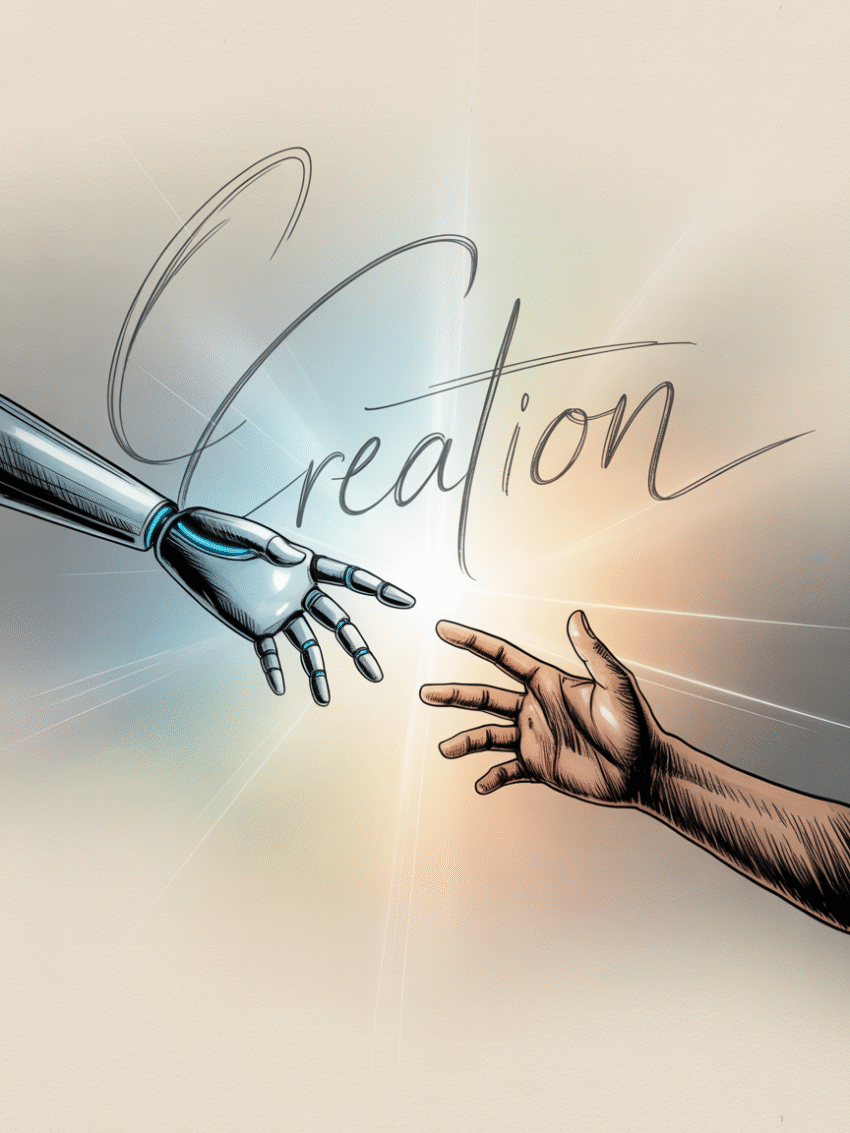The AI Revolution: Will Machines Replace Humans?
Artificial intelligence stands at a crossroads. Its rapid advancement raises profound questions about human work and purpose.
Will AI truly replace us? Or will it create new possibilities we’ve yet to imagine?
The Acceleration of AI Capabilities

Early AI (1950-2000)
Narrow capabilities. Limited to specific tasks like chess.
Machine Learning (2000-2015)
Pattern recognition emerged. Data-driven decision making began.
Deep Learning (2015-2022)
Neural networks mastered complex tasks. Image and speech recognition soared.
Generative AI (2022-Present)
Creative capabilities unleashed. Content creation and reasoning skills advanced dramatically.
The Acceleration of AI Capabilities
Early AI (1950-2000)
Narrow capabilities. Limited to specific tasks like chess.
Machine Learning (2000-2015)
Pattern recognition emerged. Data-driven decision making began.
Deep Learning (2015-2022)
Neural networks mastered complex tasks. Image and speech recognition soared.
Generative AI (2022-Present)
Creative capabilities unleashed. Content creation and reasoning skills advanced dramatically.
Jobs Most Vulnerable to Automation
Knowledge work
Analysis, research, and content creation
Transportation
Driving, delivery, and logistics
Data processing
Accounting, data entry, basic analytics
Manufacturing
Assembly, quality control, packaging
Retail
Cashiers, inventory, customer service
Skills That Remain Uniquely Human
Emotional Intelligence
Machines struggle with genuine empathy. Human connection remains irreplaceable.
Creative Thinking
AI can imitate but not truly innovate. Original thought springs from lived experience.
Ethical Judgment
Moral reasoning requires human values. Machines lack authentic moral agency.
Complex Collaboration
Nuanced teamwork demands social intelligence. Humans excel at collective adaptation.
The Economic Impact Paradox
Job Displacement
Up to 30% of work hours globally could be automated by 2030.
Lower-skilled workers face disproportionate impact. Wage polarization increases.
New Opportunities
AI could create 97 million new jobs by 2025.
Human-AI collaboration roles will emerge. Productivity gains may benefit all.
Augmentation vs. Replacement

AI as Tool
AI enhances human capabilities without replacing workers. Productivity soars while keeping humans central.
AI as Partner
Collaborative intelligence emerges. Humans handle judgment while AI processes information.
AI as Replacement
Full automation eliminates human roles. Society must adapt to radical workforce transformation.

The Societal Adaptation Challenge
Education Revolution
Continuous learning becomes essential. Traditional education systems require complete redesign.
Economic Safety Nets
Universal basic income gains traction. Wealth distribution mechanisms evolve.
Regulatory Frameworks
AI governance develops globally. Ethical guidelines become standardized.
New Social Contracts
Work-life balance transforms. Purpose beyond employment becomes central.
Navigating Our AI Future

Embrace Human-AI Synergy
Focus on tasks where humans add unique value. Develop complementary capabilities with AI.
Invest in Adaptability
Cultivate transferable skills. Prioritize creativity, critical thinking, and emotional intelligence.
Shape the Future Actively
Participate in AI governance discussions. Demand technology that serves human flourishing.
